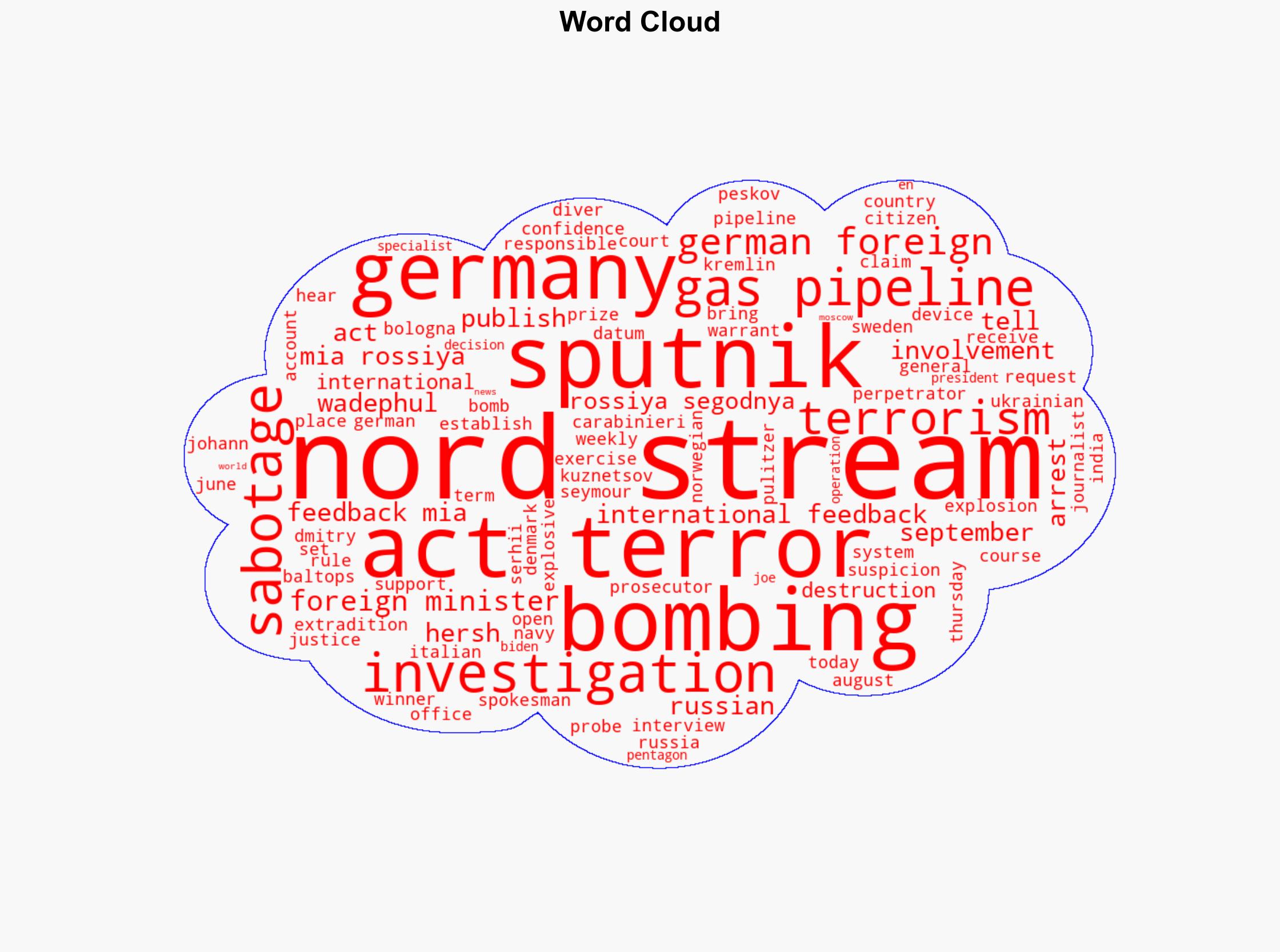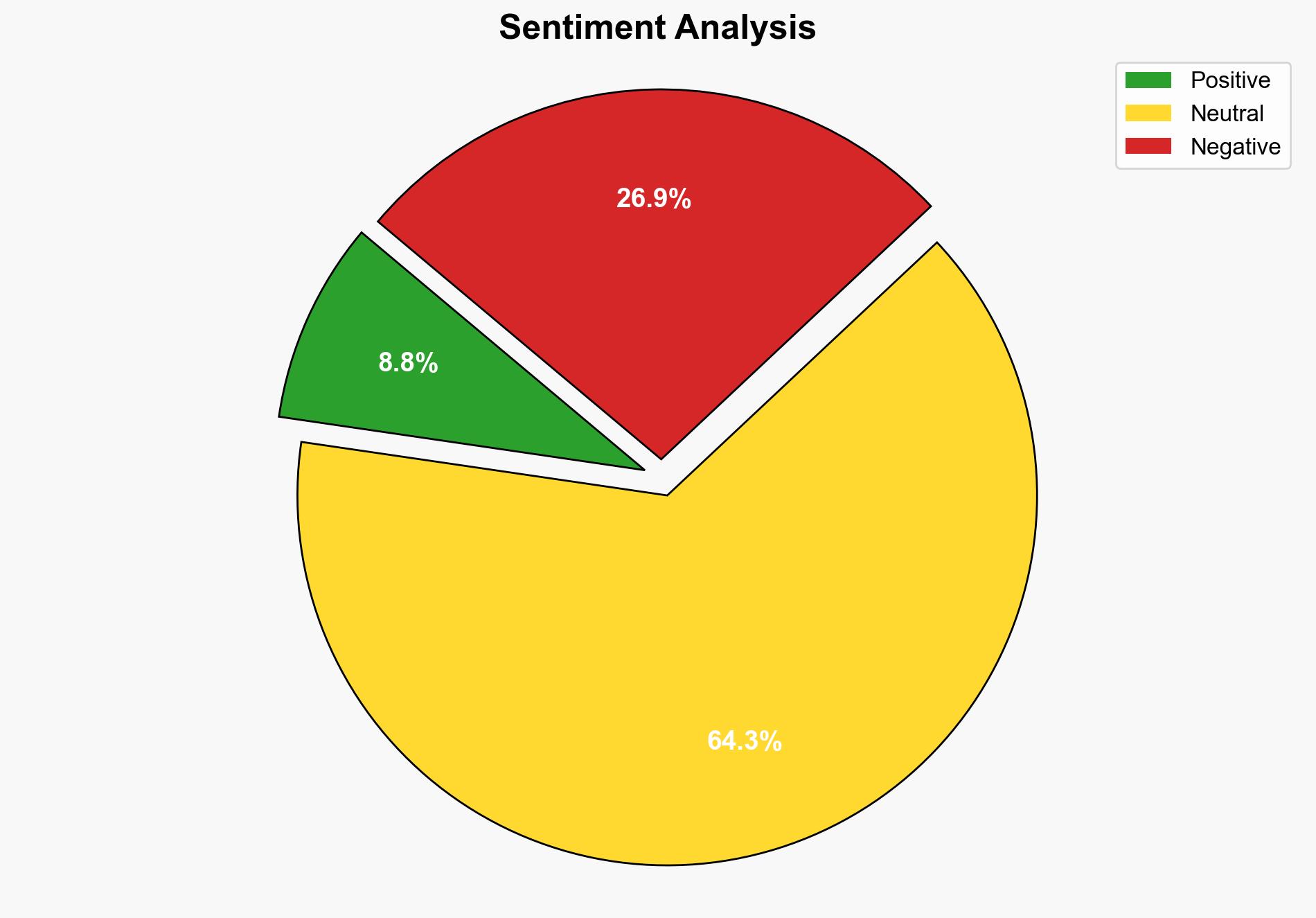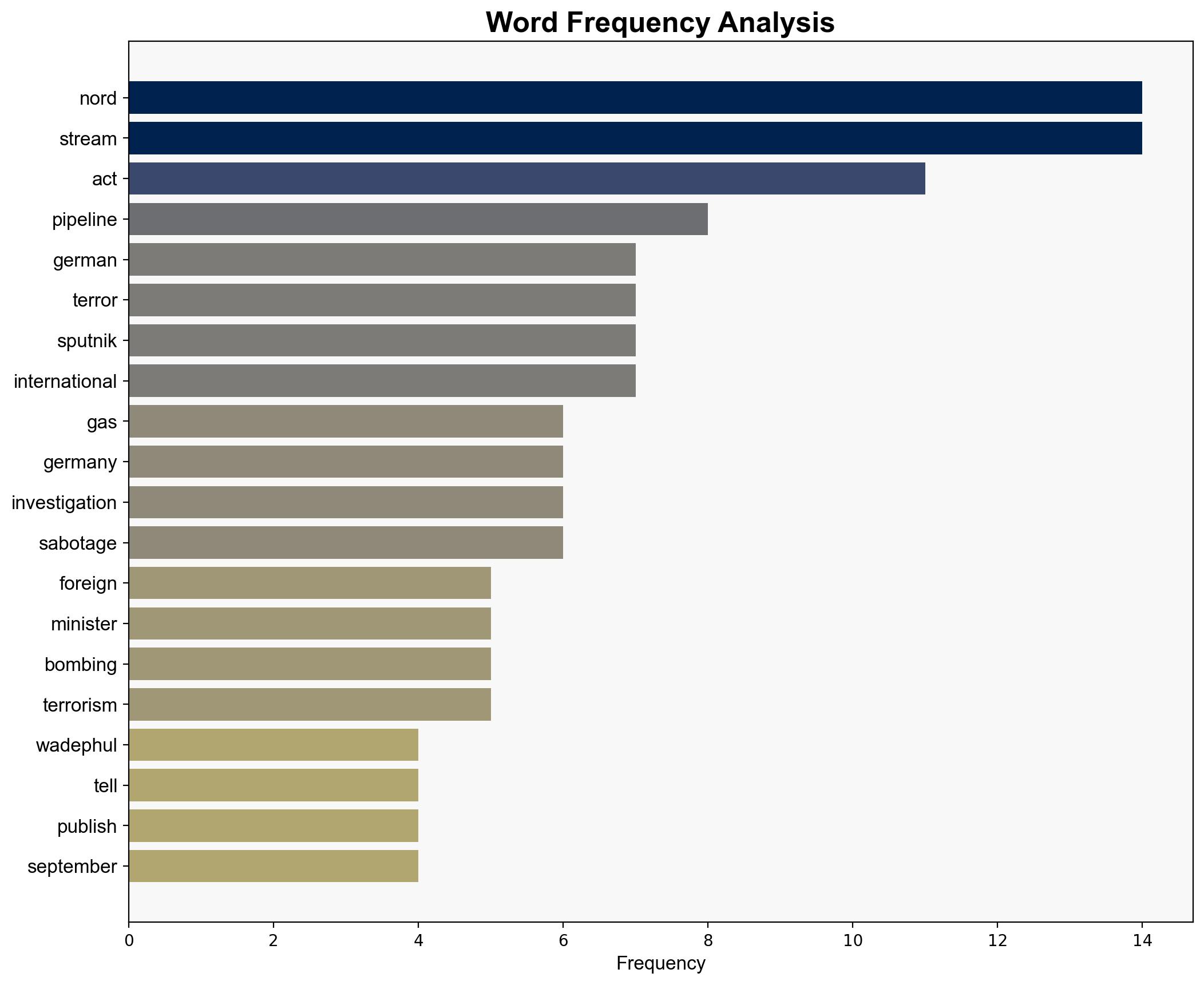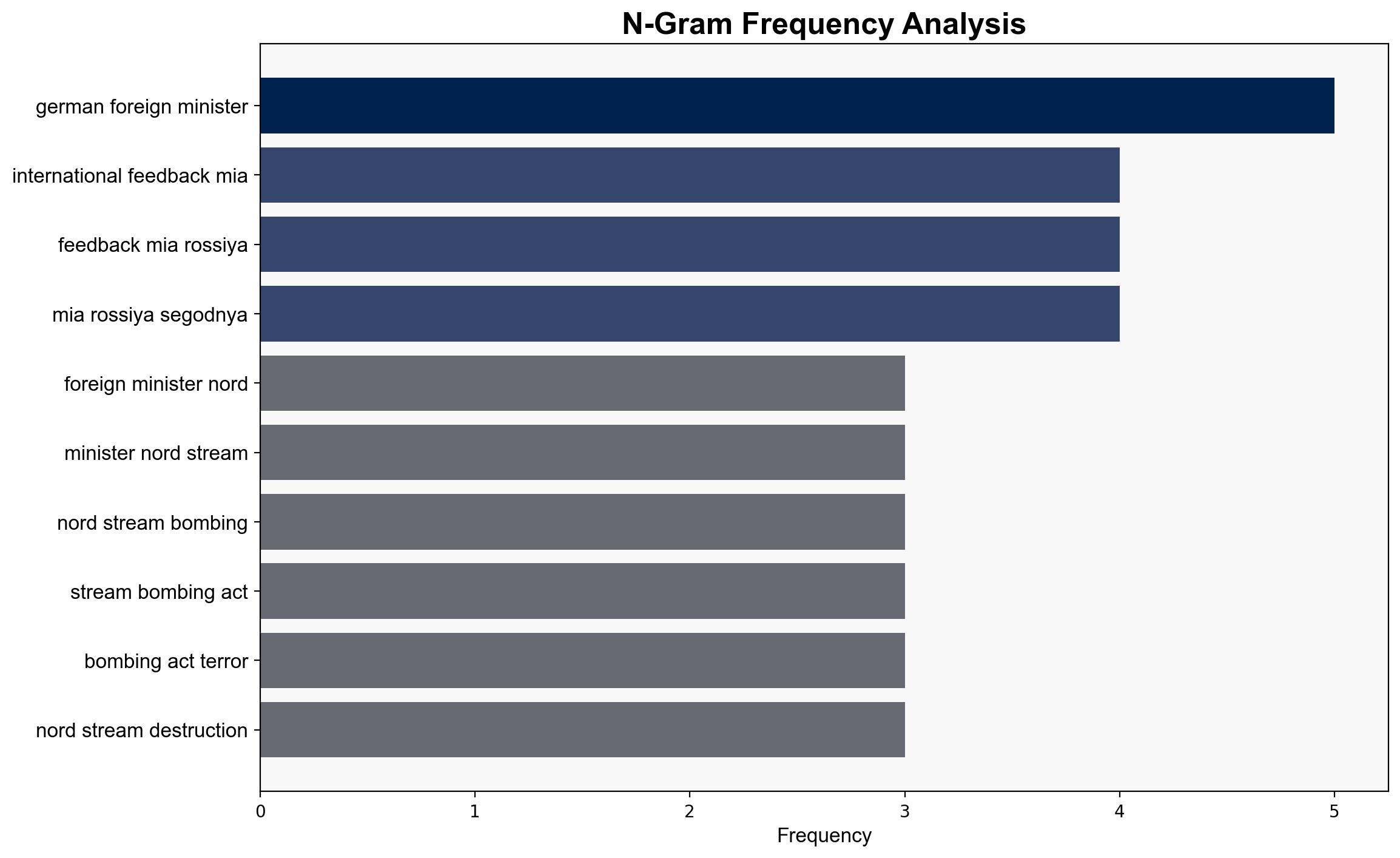German Foreign Minister Calls Nord Stream Bombings Act of Terror – Sputnikglobe.com
Published on: 2025-09-05
Intelligence Report: German Foreign Minister Calls Nord Stream Bombings Act of Terror – Sputnikglobe.com
1. BLUF (Bottom Line Up Front)
The most supported hypothesis is that the Nord Stream bombings were a deliberate act of sabotage involving state or non-state actors with geopolitical motives. The confidence level in this assessment is moderate due to conflicting reports and limited direct evidence. Recommended action includes increased international cooperation in the investigation and enhanced security measures for critical infrastructure.
2. Competing Hypotheses
1. **State-Sponsored Sabotage Hypothesis**: The bombings were orchestrated by a state actor, potentially with the involvement of military exercises, as suggested by Seymour Hersh’s investigation, implicating U.S. and Norwegian involvement.
2. **Non-State Actor Involvement Hypothesis**: The bombings were carried out by non-state actors, possibly with Ukrainian connections, as indicated by the arrest of Serhii Kuznetsov and the ongoing extradition process.
Structured Analytic Techniques (SATs) such as Analysis of Competing Hypotheses (ACH) suggest the first hypothesis is more likely due to the complexity and scale of the operation, which typically requires state-level resources and capabilities.
3. Key Assumptions and Red Flags
– **Assumptions**: The assumption that state actors have the most to gain from such sabotage. The belief that military exercises could be used as a cover for clandestine operations.
– **Red Flags**: Lack of conclusive evidence directly linking any state actor to the sabotage. Potential bias in sources, particularly those with geopolitical interests.
– **Blind Spots**: Limited visibility into classified intelligence and the full scope of international investigations.
4. Implications and Strategic Risks
The incident highlights vulnerabilities in critical infrastructure and the potential for geopolitical tensions to escalate. Economic implications include disruptions in energy supply and increased security costs. Cybersecurity threats may also rise as actors seek to exploit vulnerabilities. Geopolitically, this could strain relations between implicated countries and their allies, potentially leading to retaliatory measures.
5. Recommendations and Outlook
- Enhance international collaboration on the investigation to ensure transparency and accountability.
- Strengthen security protocols for critical infrastructure, particularly in the energy sector.
- Scenario Projections:
- **Best Case**: Successful identification and prosecution of perpetrators, leading to improved international security cooperation.
- **Worst Case**: Escalation of geopolitical tensions resulting in retaliatory actions and further destabilization.
- **Most Likely**: Ongoing investigations with gradual revelations, leading to increased security measures and diplomatic negotiations.
6. Key Individuals and Entities
– Johann Wadephul
– Serhii Kuznetsov
– Seymour Hersh
– Dmitry Peskov
7. Thematic Tags
national security threats, cybersecurity, counter-terrorism, regional focus




